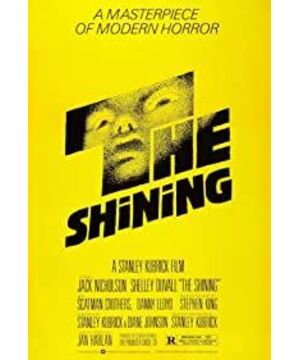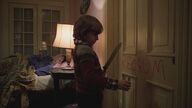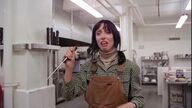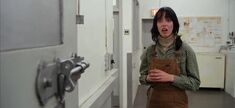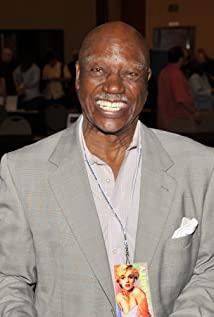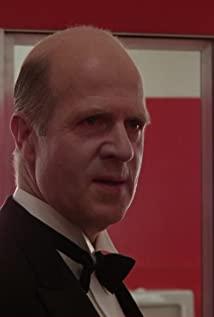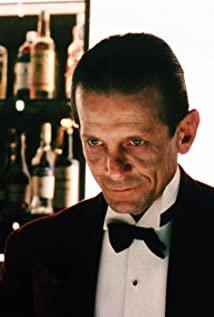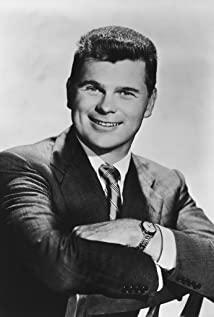Kubrick on "The Shining"
01
Michel Ciment (Editor-in-Chief of Feature Films) , Chairman of the International Film Critics League): In your previous movies, you seem to be more interested in the facts and issues surrounding the story-such as in "Dr. Strange Love", "2001: A Space Tour", "A Clockwork Orange" Discuss the relationship between nuclear threats, space travel, government, and violence. In "The Shining", you are first attracted by the subject of extrasensory perception (ESP), or Stephen King's novel.
Kubrick: I have always had a strong interest in ESP and paranormal. Some experiments have shown that proving the existence of supernatural power is just a lack of some decisive evidence. In addition, I can be sure that we have all experienced things like this: opening a book is exactly the page we want to read, or thinking of a friend the moment he calls. But shooting "The Shining" was not just to talk about ESP. John Calley of Warner showed me the original novel, and I think this is one of the most original and exciting works of this kind I have ever seen. It strikes a special balance between psychology and supernatural power, making you think that you can explain the supernatural world from a psychological level. "These things must be Jack's imagination, because he is a lunatic", which allows you to put aside the suspicion of surrealism until you enter the story so completely that you accept it unknowingly.
Simon: Do you think this is the key to the success of the novel?
Kubrick: Yes. I think this is the brilliance of the novel. When a supernatural phenomenon occurs, you will look for the corresponding explanation. The most plausible explanation seems to be that these strange things are actually what Jack imagined. Until Grandi, who killed the family's former guard with an axe, his ghost opened the door of the storage room and let Jack run away. At this time, there is no other way than to explain it with the supernatural. This novel is definitely not a serious literary work, but the plot design is basically excellent, which is usually what is really important for movies.
Simon: Do you think that these very archetypes and symbolic images can only be found in this kind of popular literature, but they have basically disappeared in high-grade literary works? ?
Kubrick: Indeed, I think this is part of the reason why they are often so successful. There is no doubt that a good story is always important. Great writers usually create on the basis of a good plot. I have not been able to determine whether the plot is just a way to attract readers so that you can do other things, or whether the plot is really more important than other things, communicating with us subconsciously, just like the previous myth. I think in some ways, the clichés of those realistic novels and dramas severely constrain the story itself. First of all, if you stick to the rules and follow the rhythm and layout required by realism, it will take you much longer than fantasy novels to express what you want to express. At the same time, your work on realism may weaken your subconscious ability to catch people. Realism may be the best way to dramatize ideas and concepts. Fantasy novels are the best way to deal with themes that occur on the subconscious level. I think the subconscious allure of ghost stories, for example, lies in the expectation of immortality. If you have ever been scared by ghost stories, then you must accept that supernatural things are possible. If they do exist, then what awaits us after death is more than just being forgotten.
Simon: There are similar hints in many fantasy novels.
Kubrick: I think the best fantasy stories have the same effect on us as the fairy tales and myths of the past. The popular fantasy themes, especially in movies, hint at popular culture, at least, it is impossible to find what you need from realism. The 19th century was the golden age of reality fiction, and the 20th century may be the golden age of fantasy fiction.
Simon: After "Barry Linden", did you directly work on "The Shining"?
Kubrick: After filming "Barry Linden" I spent most of my time reading. Month after month, I didn't find anything to excite me. When I think about how many books I have to read but never get the chance to read, especially at this time, I feel a sense of fear. Because of this, I began to avoid systematic reading and replaced it with random methods, half by chance and half by planning. I think this is the only way to deal with the newspapers and magazines piled up in the room-some of the articles I was looking for may be hiding other things that interest me.
03
Simon: Did you do any research on ESP?
Kubrick: In fact, there is not much research to do. I don't need to study this story because I have always been interested in this topic. I think I know more than enough. I hope that ESP and other psychic phenomena related to it will eventually be able to use scientific experiments to find scientific arguments. In fact, many scientists have been attracted by the existing evidence and have spent a lot of time working hard in this field. If decisive evidence can be found, it will not be as exciting as people have discovered extraterrestrial intelligence, but it will certainly make people see it. In addition to these inexplicable psychic experiences that we more or less remember, I think we can find similar things in the behavior of animals. I have a long-haired cat named Boli, whose hair is always knotted and needs me to comb or shear her. It hates me doing this. Many times, when I stroked it and felt that there were many knots in her hair and wanted to take some measures, it would suddenly get under the bed before I was ready to take the scissors or comb. Of course I thought about the possibility that it could predict when I was going to use the comb in advance, for example, when I wanted to comb her hair, I would use some special movement to touch the knots, but I'm sure she didn't detect it by this. Her hair is almost always knotted, and I stroke her countless times a day, but it runs away and hides only when I want to trim it. Since I realized this possibility, whether I feel she needs to be groomed or not, I have deliberately made myself feel the same as touching her, but it can still detect the difference.
Simon: Who is Diane Johnson who wrote the script with you?
Kubrick: Diane is an American novelist. She has written many excellent novels that have received widespread attention. I have developed a keen interest in several books written by her. After chatting with her, I was surprised to find that she actually taught Gothic novels at Berkeley University. When "The Shining" was established, she was considered an ideal collaborator, and in fact she was indeed competent. I had started writing story scripts (treatment) before she started to participate in the creation, but I haven't started writing scripts yet. The key to writing the "The Shining" script is to extract the essence of the story, and to rewrite the weak links of the story, and the characters are somewhat different from those in the novel. Great novels are usually ruined at this stage of compression, because their brilliance lies in the beauty of the writing, the author’s insight, and the density of the story. But "The Shining" is different. Its advantages are almost all in the narrative structure. It is not difficult to adapt it into a movie script. Diane and I discussed the book carefully and drafted an outline for the passages that should appear in the film. These paragraphs have been repeatedly combined and broken up until we think they are right, and then we begin to write them formally. We wrote several drafts, and we revised them one after another before and during the shooting.
Simon: It’s strange that you emphasize this supernatural aspect, because others will say that in the film you spent a lot of pen and ink on Jack’s behavior to make obvious rational explanations: such as high altitude, claustrophobia, loneliness, lack of drinking ( lack of booze).
Kubrick: Stephen Crane wrote a story called "Blue Hotel." You can quickly learn that the core character in it is a paranoid. In a poker gambling game, he felt that someone was out of control, so he blamed the opponent, provoked a fight and was eventually killed. You will feel that what the story says is that his death is inevitable, because a gambler suffering from paranoia will inevitably be involved in a deadly gunfight in the end. However, in the end, you will find that the person he blamed did indeed commit hacking. I think "The Shining" also uses similar psychological misleading to prevent people from prematurely realizing that supernatural things are actually happening.
05
Simon: Why did you modify the end of the story and delete the scene that the hotel ruined?
Kubrick: To be honest, the ending of the original book is a bit stale and meaningless to me. I want an ending that the audience can't think of. In the film, the audience thinks Hallorann can come to save Wendy and Danny. When he is killed, the audience thinks: it's bad. Obviously, what the audience is worried about is that Wendy and Danny have nowhere to escape. The end of this maze may be thought of from the animal topiary passages in the novel. In fact, I don't remember where the original idea came from.
06
Simon: Why has the room number changed from 217 in the novel to 237?
Kubrick: The film’s location is Timberline Lodge near Mount Hood, where there is only 217 without room 237. The manager of the hotel worried that the guests would not stay in room 217 after watching the movie. In fact, what really scares us is that the hotel is built on the high slope of Mount Hood. Mount Hood happens to be a dormant volcano, but the recent earthquake-like pre-eruption on the mountain is very similar to the large-scale eruption that occurred on Mount St. Helens, 60 miles away, a few months ago. If Mount Hood came to do this, Timberline Lodge is probably burnt down like the Vision Hotel in the novel.
06-1
Simon: How did you and your art director Roy Walker design and conceive the hotel.
Kubrick: First, Roy traveled all over the United States to take pictures of hotels that might be suitable for this movie. Then we spent several weeks choosing different rooms in these photos. With the help of detailed photographs, our draftsman began to make drawings. We made models of all the scenes according to the drawings. Compared with traditional horror movies, we want hotels to be authentic. The structure of the hotel is very complicated, many rooms are very big, I think this is enough to create a weird atmosphere. This realistic processing method is also used in the lighting, as well as every detail of the scenery. I think Kafka's writing style is a perfect guide to this approach. His stories are both absurd and profound, but his style of writing is so simple and straightforward, just like news reports. However, all the films adapted from his novel seem to ignore this point, and treat everything as possible in a dream-like and weird direction. The specific details of these different rooms come from different hotels. The red bathroom where Jack met the undead of Grandi the former caretaker was inspired by the bathroom designed by Frank Lloyd Wright (Frank Lloyd Wright, a famous American architect) in a hotel in Arizona. These different scene models are lit, photographed, and modified. So repeatedly, adding and modifying the details of each room until we are all satisfied.
Simon: There are many movie clichés about ghosts.
Kubrick: From the more reliable records I read that claimed to have seen ghosts, I found that they always describe those things as real, very real, and it feels like a person is really standing. It's like in the house. The transparent ghosts wrapped in white cloth in the movies seem to exist only in the field of art.
Simon: You didn't show the scenes that happened in the elevator in the novel in the movie, but you repeatedly showed the passage of blood pouring out of the elevator.
Kubrick: The length of the film bounds me. I have to think about what I can put in, especially a film that follows traditional narrative methods.
Simon: What do you mean by tradition?
Kubrick: The so-called tradition means that the story is strung together according to paragraphs of dialogue. Most movies and stage shows just add more atmosphere and action. I think that by drawing lessons from the structure of silent movies where dialogue is not needed, only one shot and one subtitle can be used. The narrative objects and flexibility of movie stories have great potential. For example, subtitle: Billy's uncle, picture: Uncle gave Billy an ice cream. In a few seconds, he explained Billy's uncle without using much space. Compared with today's movies, this simple way of expression gives silent movies a very large space for expression and is more flexible and changeable. In my opinion, almost no sound films, including those that are claimed to be masterpieces, cannot be reproduced almost the same on the stage. If there is a good set, the same actors and a high-level performance. But you can't treat those great silent movies that way.
07
Simon: But "2001: A Space Adventure" can't be performed on stage, right?
Kubrick: Exactly. I have tried to follow this direction in all of my movies, but none of them have made me particularly satisfied. By the way, TV commercials and silent movies should be put together as an example of how to tell a movie story. In just 30 seconds, you need to introduce the characters, and sometimes you have to design and solve a surprising situation.
Simon: When you shoot those staged scenes, you will deliberately emphasize their ordinary side to some extent. For example, the passage of Ullman in "The Shining" or the passage of a doctor's visit is just like the meeting of astronauts in "2001: A Space Odyssey", emphasizing the social norms and the dull side of it.
Kubrick: Yes, I just said that in fantasy works you want to show things as realistically as possible, and people should be like in real life. You must be especially careful with scenes with weird or fantastic details involved in the story.
Simon: You also used some very short shots to represent the vision scene.
Kubrick: If Danny has the perfect ESP, can predict everything, warn everyone, and solve all problems, then there is probably no story to tell. Therefore, his superpowers must be imperfect and occasional. This is also consistent with the results verified by experiments on telepathy. The same situation also appeared in Hallorann. The irony is that you can let people see the past, predict the future, and telepathically, but the telephone and radio have gone on strike, and the mountain roads are also impassable due to heavy snow. Lack of communication is a theme that runs through many of my films.
Simon: You use a lot of technology, but it seems that you are always afraid of technology.
Kubrick: I'm not afraid of technology. I am afraid of airplanes. For a long time I successfully avoided flying, but I guess I would still fly if needed. Perhaps this is an example of how a little knowledge is a dangerous thing. I also had a single-engine light aircraft flight license before and had 160 hours of solo flight experience. Unfortunately, all of this just makes me scrupulous about large aircraft.
Simon: Did you think of Nicholson in this role all of a sudden?
Kubrick: Yes, I think Jack is one of the best actors in Hollywood. Maybe he can compete with the greatest movie stars of the past, such as Spencer Tracy and Jimmy Cagney. ) On par. I think for any suitable role for him, he should be everyone's first choice. His performances are always very interesting, with clear thoughts and an unspeakable unknown magic. Jack is particularly suitable for roles that require wisdom. He is both smart and knowledgeable, and these advantages cannot be played out. In "The Shining", you will believe that he is the failed writer.
Simon: Does his confrontation with Shelley Duvall on the stairs need to be rehearsed many times?
Kubrick: Yes, it is quite difficult for Shelly to be able to convincingly maintain such a hysterical state throughout the shot. It took her a long time to find this feeling, and once she found it, we got it done within a few shots. I think her performance is worthy of recognition five times in this period, but only the last two are quite good. If I took a shot many times, it must be because the actor has forgotten the words, or is not familiar with it. An actor can only do one thing at the same time. If his lines are only familiar enough to speak out, then once he has to grasp the emotion of the performance or pay attention to the position, he will definitely be in trouble. In a scene with intense emotions, it’s better to be able to shoot repeatedly without stopping to ensure the continuity of the actors’ emotions. For most actors, most of the best performances can be maintained by just one or two. Occasionally, there are times when a few more shots will have better performance, but even then, I suspect that the first few times are just more gorgeous rehearsals under the extra adrenaline stimulation of film with in-camera motion. The paragraph in "The Shining" where Jack and former bartender Lloyd’s evil spirits chat in the ballroom falls into this category. Jack's performance is incredibly complicated, and the changes in mood and thought are like decorative sounds. This is a very difficult play, because the flow of emotions is very changeable. It takes a sharp change like a blade and great concentration to maintain the sharpness without dragging the water. Jack's best performance in this scene appeared in the last few shots.
Simon: Before meeting the bartender, he did a lot of wild moves in the hallway, and he did very well.
Kubrick: I asked Jack to remember those homeless people waving arms and yelling on the streets of New York.
Simon: Did you choose Duval after watching her performance in "Three Women"?
Kubrick: I watched all her movies and I admire her acting skills very much. I think she created a character that people can recognize at once. The woman in the novel is more independent and attractive, but these characteristics will make you wonder how such a woman can tolerate Jack for so long. Shelly is of the kind who will die to Jack once she marries him. What's wonderful is Shelley's weird qualities-the way she speaks, the way she walks, the way her nervous system works. I think the most interesting actors always have some eccentricity, which makes their performances more interesting. If they don't have one, they will try to find something out.
Simon: How did you find that boy?
Kubrick: We interviewed 5,000 boys in the United States in six months. In the end, the scope was narrowed down to five people, which can be said to be one of a thousand-in fact, this ratio is already very good. My assistant Leon Vitali, who played the old Lord Bullingdon in Barry Lyndon, had interviews with his wife Kersti in Chicago, Denver, and Cincinnati. The reason why I interviewed in these three places is because I need a child's accent between Jack and Shelly. The local Warner Company advertised in newspapers, asking parents to mail in applications for taking pictures of their children. From these photos we made a list of children who looked suitable. Leon interviewed everyone on this list, and then asked the kid with a little interest to improvise a short show and recorded it with video. Those who play well will record some more. I just watch the videotape.
Simon: Where was Danny selected?
Kubrick: He comes from a small town in Illinois. His father is a railway engineer. He was about five and a half years old when he played this movie. Shooting in the UK has some special problems for him. For example, children can only work three hours a day, and can only work a certain number of days in a year. Fortunately, the rehearsal time before shooting will not be counted. So we rehearsed for a day, and then filmed for a day. I think he played great—whatever you want. He is great. He has instincts. He is very smart, very talented and very perceptive. His parents, Jim and Ann, were very insightful to his problems and very supportive, and he had a happy time. Danny can always remember his lines, and although there will inevitably be situations in which he will be accommodated at the scene, he is always very reasonable and does not behave excessively.
09
Simon: How did Steadicam help you during the filming?
Kubrick: Steadicam can help us move the camera wherever you can go-into small areas where track cannot be laid, and up and down stairs. We use the Arriflex BL camera, which is very quiet, so you can record at the same time when shooting (which is silent and allows you to shoot sound). You can walk or run with the camera, Steadicam is like a magic carpet to smooth out all the bumps. Without Steadicam, it would be impossible to follow so fast in the maze. You can't expect the camera to not capture the track when laying the track, and the track can't turn right-angle corners in the maze. Without Steadicam, your best choice is to use an ordinary handheld camera, which will shake badly when the camera moves. The only problem with using Steadicam is that it requires training, technology, and it has certain requirements for the operator's physique, you can't just pick it up and use it. But for any good operator, it takes a few days to shoot decent things. Although he will not immediately become a top master, it will be much better than the one without Steadicam. I let Garrett Brown manipulate Steadicam. He may have more experience with it than anyone else, because he happens to be the inventor of Steadicam. The camera is mounted on a spring-loaded support arm, then connected to a bracket, and finally strapped to the operator's shoulders, chest and hips. This basically eliminates the weight of the camera. The key is that the operator uses the waist to control the axis movement of the camera. The operator takes the view through a small monitor mounted on the device. In the process of your exercise, and when using the waist to pan left and right and up and down, keeping the lens parallel to the ground requires some skill. Inertia can also bring other problems, making you unable to stop exactly where you need it. To stop where you want, you have to make some predictions and hope for good luck.
Simon: Compared to your previous movies, Steadicam allows you to take more long shots.
Kubrick: Most of the hotel's scenery is composite, allowing you to climb a flight of stairs, turn into a corridor, walk along the corridor to the end, and continue to other parts of the hotel. This feeling is similar to the motion pattern of a camera in a maze. In order to make full use of the characteristics of this structure, it is necessary to shoot without editing. Of course, Steadicam makes this easier.
Simon: In some daily scenes you use the melting lens and many camera movements. On the other hand, the surreal illusion is static, and the cut is also very sudden.
Kubrick: I don’t particularly like Melting Mirror, I try to avoid using this technique, but if there are two connected scenes in the same location, you must clearly show the passage of time, and Melting Mirror is the simplest Performance method. On the other hand, those surreal visions are glimpses of the past and the future, and they must be short, even rough. Regarding the movement of the camera, I always like to make the camera move. This is the basic element of movie grammar. If your methods and scenery allow it, it not only makes the picture tasteful, but also allows the actors to perform as long and complete as possible. This will make it easier for them to stay focused and emotional in a scene.
Simon: Have you always planned to use helicopter aerial shots in the background when the title appears?
Kubrick: Yes. But the location of Glacier National Park in Montana was not chosen until the end of the shooting. It's important to create such an ominous atmosphere when Jack first drives to the hotel-the huge sense of alienation and disturbingly steep mountains, as well as the narrow, intertwined mountain roads that are impassable after snow. In fact, the mountain roads filmed for the opening of the film were closed all winter, and only caterpillar vehicles could be driven. I sent a second photography team to Glacier National Park to shoot the opening film, but they told me there was nothing interesting there. We were a little depressed when we saw the samples they sent back. The originally planned location was perfect, but the staff should be replaced. I invited Greg McGillivray, who is famous for helicopter aerial photography. He took the most beautiful helicopter aerial images I have ever seen in a few weeks.
Simon: Are all extras used in the ending scenes?
Kubrick: No, this is a 1921 photo I found in the image library. I originally planned to use extras, but it turns out that it is impossible to make them exactly like the people of that era in the photo. So I took Jack very carefully to make him match the 1912 photo in terms of light and angle. We shot at different distances, so his face has different sizes on the negative, so that it can be zoomed in. Find a photo that matches the grain of the original photo. The picture of Jack’s face was sprayed on the original picture, and the effect is perfect in my opinion. Every face around Jack is a prototype of that era.
Simon: What style of music do you use?
Kubrick: The music of the title is based on the melody of "Days of Wrath" used by many composers since the Middle Ages. It was re-arranged by Wendy Carlos and Rachel Elkind using electronic synthesizers and vocals, and they synthesized most of the music of "A Clockwork Orange". Some other passages used Bartok (Hungarian composer and pianist) "Music for Strings, Percussion and Celesta" (Music for Strings, Percussion and Celesta). Ligeti (Hungarian composer) also used a piece of music. But most of the music is composed by Polish composer Krystof Penderecki. One piece of music called "Jakob's Dream" was used when Jack wakes up from a nightmare, which is a weird coincidence. In fact, there are many such coincidences, especially in the name. The character played by Jack Nicholson is called Jack in the novel. In the novel, his son is called Danny, and this character is played by Danny Lloyd. The ghost waiter in the bar in the book is called Lloyd.
12
Simon: What music did you use in the ending.
Kubrick: It was a dance song called "Midnight, the Stars and You" that was popular in Britain in the 1920s. It was performed by Ray Noble (Ray Noble, the pioneer of American pop music) and Al Bowlly (born in Africa and born in Africa). A singer famous in the 1930s) sang.
Simon: What do you think of the role of Hallorann.
Kubrick: Hallorann is a simple countryman who uses a relaxing and unscientific way to explain telepathy. He is kind and easy-going, and naive to explain his and Danny's telepathy, what he said is more acceptable than standard pseudo-scientific explanations. He and Danny are a good pair.
Simon: This child created a clone to protect himself. His father called the dead souls to herald his death (whereas his father conjures up beings from the past who are also anticipations of his death).
Kubrick: Surreal stories cannot be analyzed too thoroughly. Letting the cold hair on the back of your neck stand up is the ultimate way to test its basic logic. If you analyze every detail completely according to logic, the final result is often ridiculous. In a treatise on "the scary thing" (also translated as Das Unheimliche), Freud said that the uncanny is the only feeling that has a stronger experience in the field of art than in life . If any argument is needed to defend this type, I think this is enough.
11
Simon: What do you think of Danny's changes?
Kubrick: Danny had a childhood full of fear and anxiety. His father was very rude to him, and the horror scenes he often saw tortured him. He had to find some psychological solutions to deal with those horrible forces. So he created his fictional friend Tony. In this way Danny can rationalize the experience he saw and survive.
Simon: In the past few years, some people have criticized you for not paying attention to the personal problems of the characters. In "Barry Linden" and now "The Shining", you seem to pay more attention to the relationship between people.
Kubrick: If this is true, it is not the result I deliberately caused. How you decide to make a certain movie is difficult to explain to others. The first is to find an exciting story that satisfies the indescribable requirements of being a film, and then the story has to be sufficiently different from what you have made before. Obviously the more movies you make, the less options you have. If you read a story written by someone else, you will have an irreplaceable first reading experience. This is something you can't get when you write a story yourself. Reading someone else’s story for the first time can give you a more correct judgment on the narrative, and it is easier to make an objective estimate than writing an original story yourself. Another important thing is that when you make a movie, you get deeper and deeper, and you will find that in a sense, you know less and less about it. That's because you are too close. When you get to that point, dependence is very critical to the initial feeling of the story. Of course, at the same time, because you have a deeper and deeper understanding of the story, you can also make many better judgments than after you first read the story. But from a less strict point of view, you can never experience the story as you did when you first read it.
Simon: It seems that you want to find a balance between rationality and irrationality. For you, a person should admit the existence of irrationality in oneself instead of suppressing them as much as possible.
Kubrick: I think we are all a little hypocritical about ourselves. We always ignore our shortcomings easily, and I don't just mean small shortcomings. I think almost no one will make a serious mistake without making excuses to shift the responsibility to those who have hurt them. We can be extremely good or extremely evil. The problem is that we can't distinguish between things that are good for us.
13
Simon: Failure to understand these will lead to a misunderstanding of "A Clockwork Orange".
Kubrick: I have not been able to understand why some people think that this movie is an identification of violence. I can only interpret this as a prejudice against the film. This prejudice almost completely ignores the entire film except for some scenes. The famous film director Luis Bunuel said in the New York Times:'A clockwork orange is my favorite for some time, and I have negative stereotypes about the film. After watching the movie, I realized that this is the only movie about what the modern world really is. "A Clockwork Orange" has received worldwide acclaim as an important work of art. I don't think anyone will identify with Alix, and there is no sign that people will do so. The authority that conflicted with Alix in the story seemed as bad as him, if not even worse to some extent, but that was not an excuse to forgive him. The story is ironic, and it also has the nature of satirical literature, which expresses the opposite of truth like truth. If you insist on thinking this way, I think you have misunderstood this movie.
Simon: What do you think of Jack, the most important character in The Shining?
Kubrick: Jack came to a hotel that was psychologically ready for his murder call. His anger and frustration felt like there was nowhere to go, he could only completely lose self-control. He was pained by his failure in writing. He married a woman whom he looked down upon. He hates his son. In the hotel, he was dominated by powerful evil spirits, and soon went to the dark side.
Simon: You don't treat those ghosts as merely a projection of his spirit.
Kubrick: For the purpose of storytelling, my point of view is that what is surreal is true. Jack's mental state is just to pave the way for him to kill, just to temporarily mislead the audience.
Simon: The movie is over, then what?
Kubrick: I want to surprise the audience, make them believe in the movie when they watch it, and retains some sense of it. The photos of the ballroom suggest that Jack is the reincarnation of the previous person.
Simon: You are a person who pursues rationality and loves to find out the truth of things. But in "2001: A Space Odyssey" and "The Shining" you showed the limits of knowledge. Is this what William James (American philosopher and psychologist, pioneer of psychological functionalism and philosophical pragmatism) called the unexplained residues of human experience?
Kubrick: Obviously, science fiction and supernatural phenomena can quickly make you feel the limitations of knowledge and rational explanation. But from a dramatic perspective, you have to ask yourself:'If all of this is beyond reproach, how did it really happen? 'This is basically what you can do. I like the part of fantasy stories where rational thinking is used to rationalize the unbelievable (I like the regions of fantasy where reason is used primarily to undermine incredulity). Common sense can take you to the edge of these areas, but from then on you can only rely on your own imagination. I think we are struggling to stand at the limit of rational thinking and enjoy the short feeling of freedom brought by our imagination exercises.
Simon: Of course, there is a danger that some viewers may misunderstand that a person can do things without reason at all and fall into the vicious circle of mysticism that is now very popular in the United States.
Kubrick: People can distort anything in order to conform to their own opinions. They only see what they have identified in art. I really want to know how many people can be influenced by a certain work of art and have a major conceptual change.
Simon: Did you grow up in a religious environment?
Kubrick: No, not at all.
Simon: You play chess. I want to know if the logic of chess and chess can be compared with what you just said.
Kubrick: First of all, even the greatest chess masters, no matter how mature they consider them, are rarely counted as the end of the game. So they make every move based on partial intuition. I play chess pretty well, of course I am not a master. Before I found something better (to make a movie), I played in the Marshall and Manhattan Chess Clubs in New York, and sometimes I played chess in parks or other places to make money. Chess can teach you many things, one of which is to learn to control your impulses when you think the situation looks good. It teaches you to think twice before acting, and to look at problems objectively when you encounter difficulties. When you make a movie, most of the time you need to make a decision on the spot. At this time, there will be a tendency to act recklessly. In a noisy, chaotic, and high-pressure set, thinking, even for thirty seconds, requires more self-control than you can imagine. But you re-examine something that you thought was good at first, and a few seconds of thinking can often prevent you from making serious mistakes. When it comes to making movies, chess can make you make fewer mistakes instead of inspiring. Inspiration is always coming, assessing and applying them to the point of cultivation required is the real work.
Simon: Did you play chess on the set of "The Shining" as if you were shooting "Doctor Strange Love" (with George C. Scott) and "2001: A Space Tour"?
Kubrick: I played several games with Tony Burton, the actor in the film. He is a very good chess player. That was when the film was about to be finished, everything tended to be simple and clear. When I was shooting "Doctor Strange Love," I played more with George C. Scott. George is also a good chess player, but if I remember correctly, he didn't win much. This allows me to take advantage of everything else. If you think you are a good chess player, you will over-respect your opponent who can beat you.
Simon: You used to be a very good photographer. How do you think this can help you make movies?
Kubrick: There is a famous saying that when a director dies, he becomes a photographer. This sentence is very clever but a bit slick, usually from critics who criticize the film for being too gorgeous. Anyway, I started with photography and I have been working for "LOOK" magazine from the age of 17 to 21. It is incredible for me that I can get this job after graduating from high school. I am very grateful to the photo editor Helen O'Brian and the editor-in-chief Jack Guenther at the time. That experience was invaluable, not only because I learned a lot of photography from it, but also let me understand the whole story of what is happening in the world in a short time. Having been a professional photographer can be said to be a big advantage for me, although not everyone who works with me thinks so. When I directed "Spartacus", my photographer Russel Metty was very surprised when I chose the camera position myself and told him what kind of lighting I wanted. If he is in a good mood, he will curl up behind me when I look at the viewfinder, raise his Zippo in front of my eyes, and use it as a viewfinder. The free advice he gave me is that the top directors always point in the direction of the camera, say something like'Russ, a tight 3-shot', and then go back to their RV. went.
Simon: What kind of photographer do you belong to in "LOOK".
Kubrick: The most common kind of photojournalist. At that time, this event brought me a lot of fun, but the fun gradually disappeared in the end, especially when I was determined to make a movie. The tasks assigned to me by "LOOK" are usually stupid. I will shoot some story topics such as: Are athletes stronger than babies? It is to take photos of college football players and have them imitate 18-month-old babies in some'cute' poses. Sometimes, I get some opportunities to shoot some interesting character stories. One of them is about Montgomery Clift (American film actor), who was in the ascendancy of his career. Photography has laid a good foundation for my film career. Shooting a movie on your own, just like I just started, you don’t understand anything else, but you must know photography.
Simon: Do you prefer real or artificial scenery?
Kubrick: If the real scene exists and your production team can be there, it will be more convenient and cheaper to shoot in real scene. But sometimes it costs more to shoot on the spot than the artificial set. It is very expensive to take a group of people out to shoot now.
15
Simon: Why did you shoot "The Killer" in the studio?
Kubrick: Because the sets are indeed cheap, and there are many scenes in each set in the script. At that time, shooting indoor scenes on the ground was much more difficult than it is now. At that time, there were no small microphones or radio transmitters, the cameras were large, and the sensitivity of the film was not good. Many things have changed since then. But I still remember having an argument with a photographer who refused to shoot with a 25mm lens. He insists that the scope of the lens is too wide, and once there is panning or lens movement, distortion will inevitably occur. People now think that the 25mm lens is almost a standard lens, and the wide-angle lens has reached 9.8mm, which can provide us with a horizontal viewing angle of almost 90 degrees. If "The Shining" were shot on location, I would not be able to use the same method to light it, and because of the snow, it would be very impractical for us to do so. There are a lot of trouble shooting in a real hotel. Although the hotel is closed in winter, it is because it is really impossible to get in during that time.
16
Simon: What kind of horror movies do you like? Have you seen "Rosemary's Baby"?
Kubrick: This movie is indeed the best in the same genre. I also like "The Exorcist."
Simon: What about John Boorman's "Hearts"?
Kubrick: I haven't watched it yet, but I like his work. "Deliverance" is a very good movie. What surprises me is that some directors (not Boorman) who can achieve great financial success seem to be more willing to give up being film directors and become film tycoons. If you care about the movie itself, I don't think you would be willing to let someone else direct it for you.
Simon: Maybe they don't like the shooting itself.
Kubrick: Indeed, making movies is not always so interesting. But if you care about the movie, it's fine. It's a bit like changing your child's diaper. One thing is certain, you always clash with others when making movies. Woody Allen said when talking about the director "Deep In My Heart", no matter how harmonious and relaxed on the surface, it seems that actors are always full of resentment when asked to do anything. However, there are still some actors who cooperate and communicate with them so well that the whole work is still satisfying and exciting. I find that writing scripts and editing is a very happy thing, and the tension is wiped out.
Simon: It's getting harder and harder to recover the cost of movies now. The copy rent must reach three times the cost of the movie.
Kubrick: More than that. Take a 10 million film as an example. It is nothing new to spend 8 million on publicity in the United States and another 4 million internationally. For a large production, an additional 2 million printing fee will be added. Assuming that the studio asks for 20% of the overhead on the budget basis, an additional 2 million will be added. For a production cost of 10 million, the interest for one year is 20%, which is 2 million-4 million for two years. A 10 million movie has cost 30 million. If an actor takes 10% of the total box office, the issuer takes an average of 35% of the box office average. Simple calculations. If you need to recover the cost, remove the 10% taken by the actors and 35% taken by the publisher, leaving 55%. Then the distributor’s film rent would have to earn 54 million. From the perspective of the producer, a film with a cost of 10 million will have to reach 5.4 times the net cost to break even. In fact, it is clear that the issuer’s break-even point is lower, because it takes away 35% of the issuance fee and also charges overhead.
17
Simon: But if you don't have control over the production, you won't get the freedom of art. You understood this early on.
Kubrick: There is no doubt that the more things you can legally control, the less intervention you will get. This does not necessarily guarantee that you will not mess up, but it will give you the best chance. The more freedom you have, the greater your responsibilities, including the logistical side of film production. You may be able to find something similar in the military. For example, Napoleon-I still want to make a movie about Napoleon-he is not afraid of the trouble to personally calculate the complicated timetable used to coordinate when all his troops will go into battle, and his troops are sometimes scattered in Europe Everywhere. If the large force fails to arrive that day, then his talent for commanding battles may not be able to be used. Of course I am not comparing his burden and talent with other directors seriously, but the key point is that if Napoleon thinks these troubles are necessary, then for a director, if he wants to get what he wants, It is a normal responsibility to make similar investments in logistics. From a bolder point of view, it may be regarded as an extension of the previous analogy. I think for Napoleon, every battle he launched brings him at least as much excitement and satisfaction as making a movie, so the same. Yes, relatively speaking, I guess that the period between the wars must feel very boring. Of course, this is not an explanation for the Napoleonic wars, perhaps this may explain from a side why Napoleon could not control his desire to launch the next war. You may be the most famous military strategist in history. There are generals such as Ney, Murat, and Davout. This is the most powerful army in Europe, but there is nowhere to go. , There is nothing to do, what does it feel like? Following this a little overdone analogy, a blockbuster film was shot-the Battle of Russia. From the beginning, Napoleon ignored all the evidence that such a huge battle would be a disaster. When he fought several wonderful battles with the Entente in the end, he still had a chance to compromise before being exiled, but he still overestimated his military capabilities, which led to his final defeat.
Simon: In your film about Napoleon, do you show it in chronological order?
Kubrick: Yes. Napoleon, himself, said that his life was a great novel. If he knew such a thing as a movie, he would describe himself that way. His life is a story, narrated perfectly in chronological order.
It’s not bad to make a 20-hour TV series, but so far the TV industry hasn’t had enough money to make this venture capital. Of course, finding an actor who can play Napoleon is also a big problem. I immediately thought of Al Pacino. With the length of these twenty episodes, it is estimated that he can always find a way of filming. By the time I get to St. Helena, he will be fifty years old...just a
joke! joke!
(Welcome all kinds of analytical film reviews to make faces)~
View more about The Shining reviews


